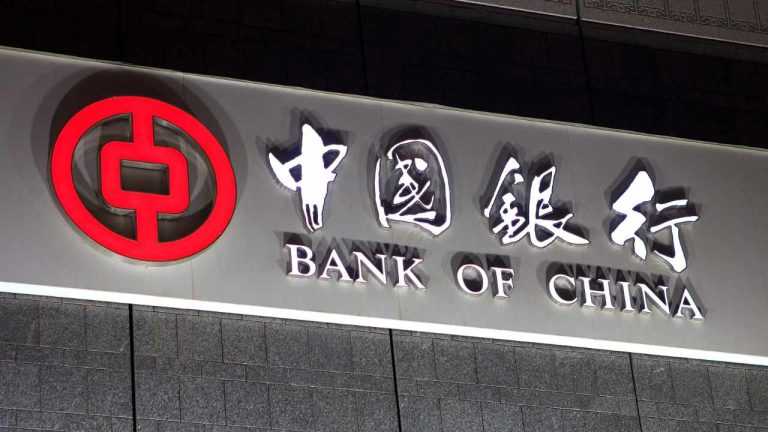Chinese State-Owned Banks Cut Dollar Deposit Rates — Dismiss Government Influence Claims
Publikováno: 9.6.2023
 Major Chinese state-owned banks have lowered interest rates on U.S. dollar deposits. However, they reportedly dismissed claims that the moves were influenced by the Chinese government, stating that the rate cuts were market-driven. Chinese Banks Reduce Dollar Deposit Rates Major Chinese state-owned banks reportedly cut the maximum interest rates they offer on U.S. dollar deposits […]
Major Chinese state-owned banks have lowered interest rates on U.S. dollar deposits. However, they reportedly dismissed claims that the moves were influenced by the Chinese government, stating that the rate cuts were market-driven. Chinese Banks Reduce Dollar Deposit Rates Major Chinese state-owned banks reportedly cut the maximum interest rates they offer on U.S. dollar deposits […]

Major Chinese state-owned banks have lowered interest rates on U.S. dollar deposits. However, they reportedly dismissed claims that the moves were influenced by the Chinese government, stating that the rate cuts were market-driven.
Chinese Banks Reduce Dollar Deposit Rates
Major Chinese state-owned banks reportedly cut the maximum interest rates they offer on U.S. dollar deposits this week.
They explained that the moves were market-driven, dismissing recent reports by some news outlets that their decisions were influenced by the Chinese government. Reuters, for example, reported Tuesday that “In a rare attempt to bolster China’s yuan, a self-regulatory body overseen by the country’s central bank has told major state-owned banks to lower dollar deposit interest rates.” The publication cited four people with direct knowledge of the matter.
According to a Wednesday report by the Global Times, “some bank insiders” described the reductions in dollar deposit rates as a self-regulatory measure aimed at preserving stability in the dollar-yuan exchange rate. The yuan has weakened more than 6% against the USD since January.
A manager at a Bank of China branch in Shanghai detailed that the bank’s one-year dollar deposit rate has been reduced from 5% to 4.3% for deposits exceeding $50,000 starting from Monday, and 2.8% for deposits below $50,000. She anticipated that the deposit rate would remain unchanged for the foreseeable future but gradually decline over the long term. Citing several market factors as the reason behind the rate reductions, including the volatility of global interest rates and a rise in dollar deposits held by the banks, she insisted:
The fluctuation of bank interest rates is normal and relatively frequent.
A manager at an Industrial and Commercial Bank of China (ICBC) branch in downtown Beijing confirmed to the publication that dollar deposit rates have been significantly cut amid expectations of the U.S. Federal Reserve pausing interest rate hikes. For example, for deposits of $30,000, the rate was reduced from 4.8% on Sunday to 2.8% on Monday.
Some Chinese lenders also cut rates on yuan deposits, the news outlet noted. A manager at a Shanghai branch of Ping An Bank said that the bank is considering reducing the current three-year yuan deposit rate of 3.25% to below 3%, with the change expected to take effect next week. On Thursday, Reuters reported that China’s biggest banks have lowered interest rates on yuan deposits.
Xi Junyang, a professor at the Shanghai University of Finance and Economics, explained that Chinese banks have sufficient dollar reserves so they do not need to offer high-interest rates to attract deposits. Xi further explained that the anticipation of a decrease in U.S. interest rates allowed Chinese banks the flexibility to make this adjustment, emphasizing that the decision is market-driven.
An economist at Oversea-Chinese Banking Corp., Tommy Xie, characterized the reduction in dollar deposit rates as a creative strategy to mitigate the effects of lower yuan interest rates. However, he noted that this measure alone is “probably not enough” to discourage carry trades that use cheaper yuan borrowings to fund dollar purchases.
Nomura Holdings’ strategists wrote in a note this week that “lowering onshore USD deposit rates may drive key accumulators of foreign currency to keep even more of their FX earnings offshore,” emphasizing that it may only add to the current negative balance of payment pressures for China.
What do you think about Chinese state-owned banks cutting U.S. dollar deposit rates? Let us know in the comments section below.